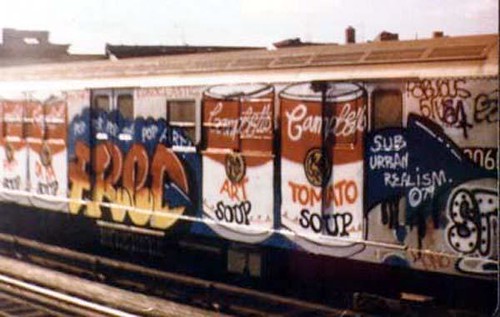Tags, Tagging and Information Diffusion
Tags in Denmark
My brother Jaimie used to be well known throughout San Jo as Daze2000 back in the 80's, then went on to LOVE and other names throughout the years. He's retired now.
For those unfamiliar with tagging--here is a sufficient definition from Wikipedia:
Some of the most common styles of graffiti have their own names. A "tag" is the most basic writing of an artist's name, it is simply a handstyle. A graffiti writer's tag is his or her personalized signature. Tagging is often the example given when opponents of graffiti refer to any acts of handstyle graffiti writing (it is by far the most common form of graffiti). Tags can contain subtle and sometimes cryptic messages, and may incorporate the artist's crew initials or other letters.Source: http://en.wikipedia.org/wiki/Tag_(graffiti)
Back in the day, I could be anywhere in San Jose and see my brother's tag. I would immediately know it was him, and that he was getting up in a variety of places. Tags can also be used for groups, or "crews" of artists, who tag their territory--similar to gang tags. Gang tags convey a host of meanings to those who are aware of them. They convey the name of the gang, that gangs history, and the implicit threat that this is "their" territory and they will protect it, etc..
Fab Five Freddy's tag travelling throughout NYC.
The above is a characterization of tagging as a folksonomy by artists and by gangsters. The tags carry meaning, information and knowledge can be gleaned from them--for instance, the knowledge the one is in a particular gang's territory and more.
I would liken the above to information tagging on files on the internet and in computer systems in general. There is a relationship between the two types of tagging that has yet to be explored.
| Graffiti Tagging | Information Tagging |
|---|---|
| Imparts information to readers | Imparts information to users |
| Is portable, can travel | Is portable, can travel |
| Is a system of social classification | Is a system of social classification |
| Can be collaboratively created, or at least understood | Collaboratively created |
| Can be broad or narrow folksonomies | Can be broad or narrow folksonomies |
| Is a folksonomy | Is a folksonomy |
| Can satisfy information needs | Can satisfy information needs |
 |
Tagging information |
Tagging became popular during the social software craze known as Web 2.0. Pre-Yahoo Flickr was a major player when it came to bring tagging as a folksonomy on the web to the masses.
Graffiti tagging on buses or trains conveys travelling information--the tags are carried around town or around the country and people are shown the tag. I would liken this to searching via tags in tag clouds or by other means--one will travel to the place where the information is located--it is in a way opposite of graffiti tagging, but closely related.
The above is meant to be a super brief sketch of an idea. What do you think? Do you agree? Disagree? Have something to add?
I would like to open up the study of the relationship between Hip Hop culture and Information Science.


Comments